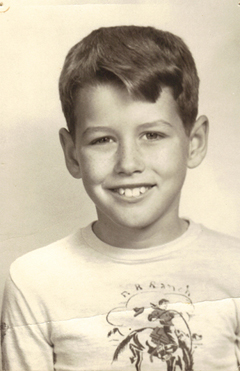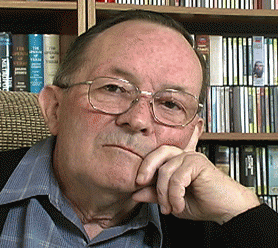Chalmers Johnson's The Sorrows of Empire is a title of the American Empire Project, whose authors in addition to Johnson include Noam Chomsky and Michael Klare. The Project's website homepage asks simply, "How did we get to this point? And what lies down the road?"
Dating the American Empire's birth as 1898, Johnson provides highly discomforting answers to those questions, from the viewpoint of a leftist military-analyst academic. I would date the birth on July 16, 1945, but Johnson's views are eminently justified, and Sorrows is an excellent and much-needed book. It is written in clear and lively declarative sentences, which will make it a fast read even for non-intellectual readers.
In sum, Johnson's outlook and information may literally change minds about the subjects he discusses. Nonetheless, I see no basis for Johnson's optimism when he writes that Congress could still turn the country around. It's already too late. The American Empire, aka Democracy As We Know It, will be stuffed down the planet's throat like it or not until the Empire goes bankrupt, which could be quite a while.
Sorrows is a gold mine of
interesting historical and sociological information, and readers with open
minds will find their own most absorbing sections. Chapter 8 - Iraq Wars --
recalled for me that the "no-fly zones" over Iraq were creations of the U.S. government
and never sanctioned by the United Nations. Oh, well. What's a United Nations?
Chapter 8 also
occasioned a connection in my mind which the book's author did not make. Many
have wondered why Bush-1 did not push on to Baghdad and capture Saddam Hussein or have
him murdered in 1991. Well sure, for more than one reason, Bush-1 wanted to set
up all those American bases in the Persian Gulf outside Saudi Arabia.
Having a live and still "threatening" Saddam Hussein made
accomplishing that objective much easier.
Johnson says the
American Empire is notable for being based on military bases instead of the
occupation of territory. And he identifies five sorrows of empire, the
first being "racism" on p28. Rightly, the author says racism is
inherent in the attitudes required to dominate other cultures militarily. The
other four sorrows Johnson lists almost 260 pages later. They are a state of
perpetual war, the loss of domestic democracy, destruction of public
truthfulness, and finally financial bankruptcy. ....'tis true 'tis pity; and
pity 'tis 'tis true.
So expect now endlessly continuing and unabashed military-expenditure-based crony (for family and friends) capitalism and whatever mutant forms of domestic governance are required to sustain it. Chickens a-la-Marcos coming home to roost, as it were. Evidently, apart from successfully deluding themselves into believing our military is a relatively invulnerable twenty-first century electronically-controlled exercise, the Empire's leaders' greatest feat to date is their amazing impersonations of the caudillo crooks they propped up around the globe - with arms and clandestine state-terrorism programs for repressing communists and their sympathizers - throughout the cold war.
Regrettably for the rest of the world and regrettably for America, Democracy As We Know It is unlikely to fade away in our lifetimes like the Soviets' control of much of the Asian land mass did.
-






